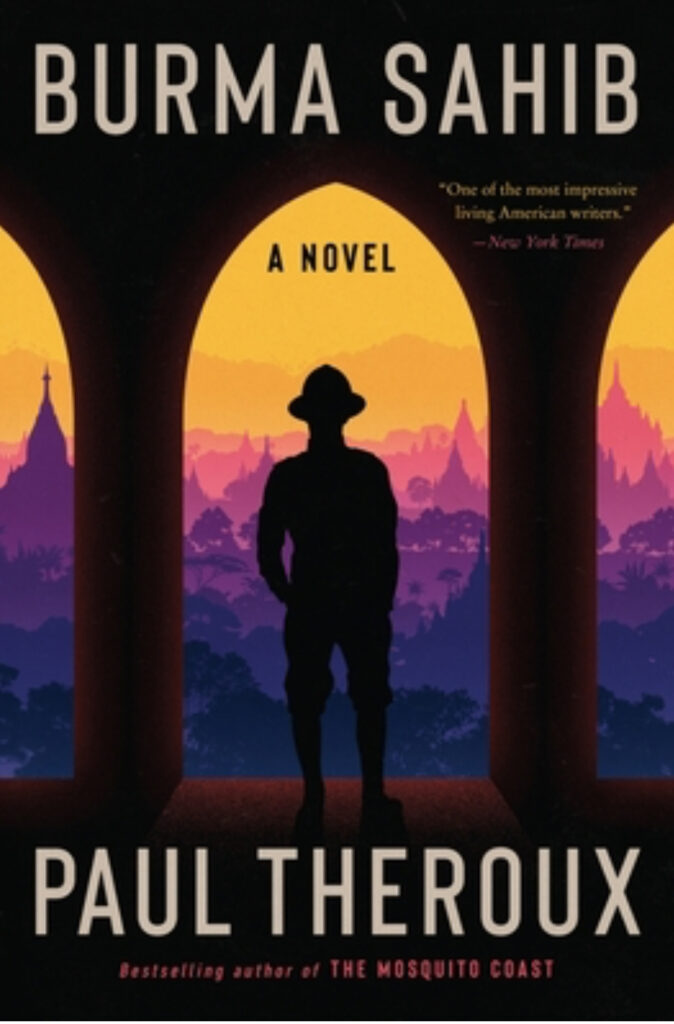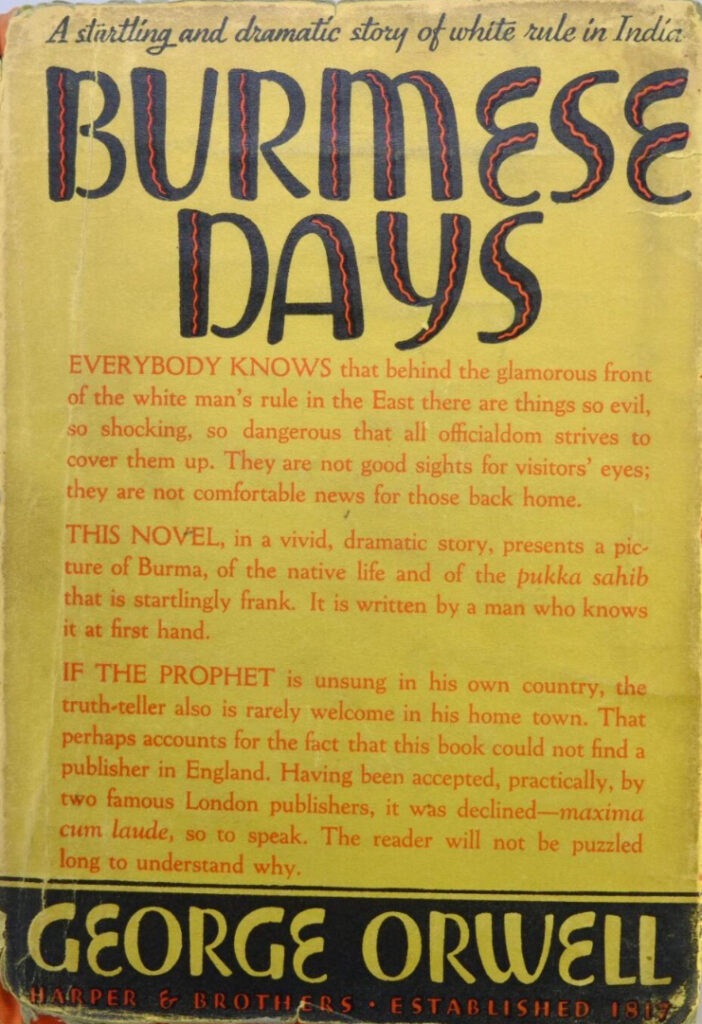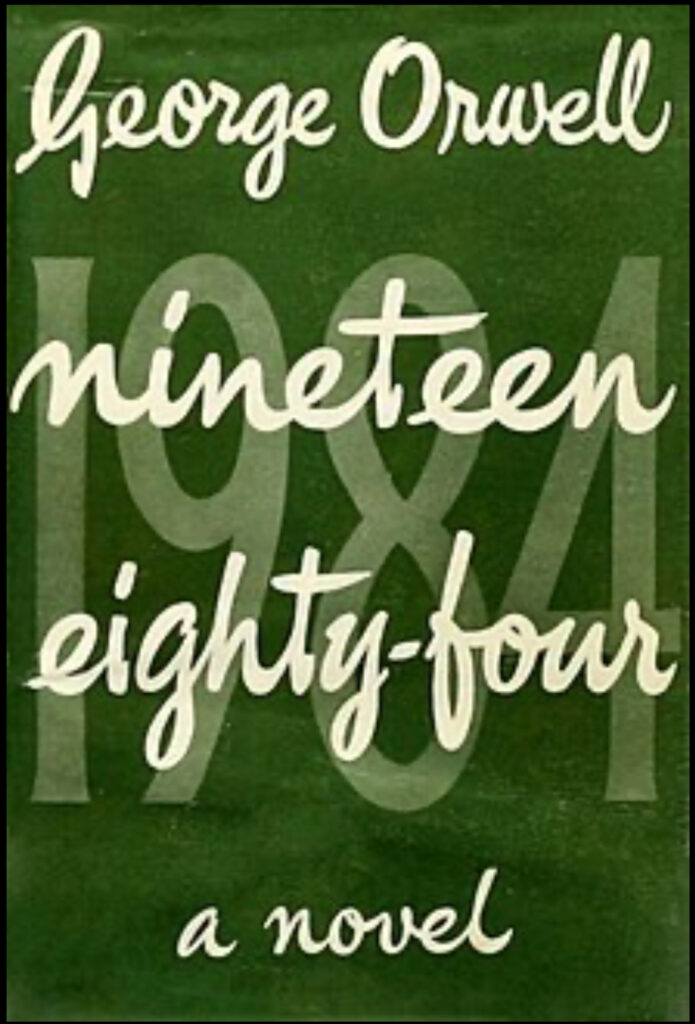Paul Theroux’s new novel, Burma Sahib, explores the period in the 1920s that a young Eric Blair spent in Burma as a British colonial policeman. Later, Blair became famous writing under the pen name George Orwell. That enduring fame has generated extensive biographical research on Blair’s life before and after he became George Orwell. But, apparently, little is known about Blair’s five years in Burma, a time that proved consequential for him as a man and a writer.

Theroux exploits this blank slate to create a fictional story about Blair’s experiences as a policeman in the British empire. The reader expects Burma Sahib to contain the traditional tension in historical fiction between imagination and facts. The novel’s subject and setting certainly liberate literary creativity. In Burma, Eric Blair is not George Orwell, and his life there is largely unknown. But the fact of Orwell hovers over the story, a bit like Big Brother, affecting how Theroux and the reader imagine Blair.
In Theroux’s conjuring, Blair in Burma is an unlikeable person and an unsympathetic protagonist. He is misanthropic, pretentious, judgmental, repeatedly dishonest, and often spineless. Despite his grasp of the Burmese language and his postings across the country—he is uninterested in Burma’s people and its civilization. Burmese and Indian subordinates call Blair sahib, a term of respect for a man of authority—respect he does little to deserve. The Blair in Theroux’s story is what my English father would have called a right git.
Probing Theroux’s approach more deeply, however, shows him constructing a portrait of a man who is still a teenager when he arrives in Burma. Young Blair struggles with his immaturity, a hungry but undisciplined intellect, family shame and secrets, and emotional vulnerabilities while frequently being a thuggish functionary in a brutish empire. We watch the psychological scarring of a raw, inchoate individual in a searing physical climate and stifling political environment rather than witness some quasi-heroic tale heralding the Orwell to come.
The Orwell who later emerged made use of Blair’s scarification in Burma, how ever it actually happened. Theroux reaches into Orwell’s oeuvre, especially works sourced from Eric Blair’s time in Burma, including Orwell’s 1934 novel, Burmese Days.

Over the course of his novel, Theroux slowly shifts Blair, in fits and starts, toward writing fiction—an activity that eventually enables the young man to begin turning his inner chaos into a potentially coherent life. Alone in his bungalow, with “quite a menagerie” of comforting animals outside, writing helps Blair achieve “greater contentment than he’d known anywhere else in Burma.”
Less understandable, however, is Theroux’s choice to surround Blair with a cast of British characters who are largely caricatures. In the police, most of Blair’s superiors and peers are Colonel Blimp cutouts. Yes, the Raj was not keen on diversity, equity, and inclusion; but the parade of imperial, racist buffoons grew tiresome and made me pine for a bit of Fry and Melchett.
British women fare little better in the novel. Many are cartoonish memsahibs—wives of British officials or merchants—or are portrayed as dull, chaperone-encumbered young women seeking a husband. The most developed female character, Mrs. Morwen Jellicoe, only develops as an adulterous sexual partner for Blair. She surprises him with her sexuality, anti-imperialist pillow talk, and belief that he will become a writer.
Blair is smitten, but Mrs. Jellicoe loses her luster as the tryst proceeds. Their coupling did not, as Blair had convinced himself, constitute a form of rebellion. She discards him when he commits a “massive blunder” with an elephant that angers British imperial sensibilities so much that she cannot associate with him anymore.
Mrs. Jellicoe condemns the empire in secret but, when the liaison becomes too risky for her place in the Raj, she becomes the very model of a modern British memsahib. The relationship’s shallowness is revealed earlier when sex gets weirdly utilitarian as the lusty lovers pant about Jeremy Bentham—the greatest good for the greatest orgasm, I guess.
Theroux also never has Blair develop friendship or rapport with any Burmese character. Burmese men mainly appear as his subordinates in the police, suspects in his investigations, servants in his bungalows, or sinister anti-British agitators. Burmese women feature mostly as erotica—prostitutes or housekeepers who provide him with sexual services.
That rendering of Burmese people in the life of a young British policeman in Burma in the 1920s might, in fact, be historically realistic. In the realm of imagination, however, Theroux’s choice missed an opportunity to develop some interesting Burmese characters along Blair’s painful path of self-discovery.
The closest Blair gets to befriending a native involves an Indian timber merchant living in Burma with the odd Indo-Anglo name of Mahadev Thackeray. The relationship begins with serendipitous bonding over elephants but eventually proves more transactional than emotional. Thackeray wants sahib Blair’s help in navigating the difficult Burmese timber market. Blair uses Thackeray’s desire to gain prestige among the British, whom the Indian claims to admire, to poke the racist Raj that Blair has come to hate.
Blair’s emerging anti-imperialism also involved the “freedom” he felt patrolling the British prison at Insein and developing a “perverse brotherhood with the prisoners,” many of whom Blair had arrested. That feeling of brotherhood is not, however, shared by the inmates, whose “hatred for him disfigured their faces.” Blair’s self-absorbed perspective on the brigands and political agitators that he put behind bars is reinforced when he senses insight in a prisoner’s observation—delivered in an insulting manner—that “you are in prison with us, sahib!”
In addition to pondering how Theroux wove fact and fiction together, I began critiquing how I was reading the novel. Instead of appreciating the craft of Theroux’s creation of young Blair in Burma, I rather obsessively looked for the Orwell who emerged after Burma—especially potential glances toward Nineteen Eighty-Four. Theroux encourages awareness of Blair becoming Orwell as Blair develops “his alter ego, George” over the course of the novel. But it became, mea culpa, a bit of a distracting parlor game.

The panopticon prison at Insein—an allusion to Big Brother, “with a tyrant at its center” ensuring “there would be no privacy.” The relentless, dehumanizing conformity of the Raj hinting at The Party’s purging of nonconformity from Oceania. The passages about rats in Burma presaging Room 101, where Winston confronts his greatest fear. Blair’s affair with Mrs. Jellicoe ending in betrayal like the relationship between Winston and Julia. Blair’s dog, ducks, and chickens—Animal Farm!
Given my foibles as a reader, I do not begrudge the Orwellian seeds that Theroux chose to sow through fact and fiction across Burma Sahib. Blair’s experience of British imperialism in Burma prepared the ground for Orwell’s warnings about the cruel totalitarianism that arose in the Soviet Union, Nazi Germany, and beyond during the decades following World War I.
After all, it was the power and legacy of Orwell’s greatest works that sparked the ambition of a contemporary novelist to write, and the curiosity of readers to absorb, a tale about a formative but mist-shrouded time in a certain young man’s journey toward literary immortality.